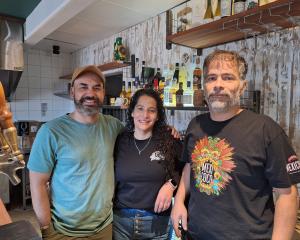Jeanette Anderson has been involved with St John for more than 30 years.
She first started as a cadet when she was 11 years old.
Her interest came from her father, who was also a volunteer ambulance officer.
Through her time with St John, Ms Anderson realised she loved helping people and decided to train as a nurse.
"St John teaches you good skills - emergency skills - and also gives you the pleasure of helping sick and injured people.
"Everyone should have first aid skills. It's a matter of life or death. As a nurse I know you can't save everyone's life but you do what you can," she said.
Ms Anderson took a break from volunteering and concentrated on her career until 18 years ago when she made the decision to again give up some of her free time to St John.
She is one of 25 volunteers who help run the ambulance service with Wakatipu St John. It also has eight paid staff members, who, along with the volunteers, attend about 2000 emergency calls a year.
The minimum time a volunteer is expected to give is three 12-hour shifts a month.
Ms Anderson is a full-time registered nurse at Lakes District Hospital.
She says the time she donates varies, depending on her nursing work, but is usually one 12-hour shift per week.
She also attended fortnightly training courses which run for two hours.
It took about five years of on-the-job training to become a fully qualified ambulance officer.
Today, it takes about one year with online courses but when she trained it was all on-the-job training.
"As a volunteer it was hard to get to the next level of training, even as a nurse.
It took hours of being on duty to get a certain number of jobs so I could get my skills up and move on to the next level," she said.
The training involves studying anatomy, physiology, medical conditions, trauma and hours of practical training.
"St John pays for training, uniforms and loss of earnings when you are on courses. When you are starting out it can be quite nerve-racking but with experience you learn to be calm and collected. And you are never on your own," she said.
A shift runs from 7pm to 7am and volunteers must spend the time at the station.
A volunteer is always rostered on duty with a paid staff member.
"You can sleep, but once the pager goes off you have to get up and run. It could be a medical or trauma call. It's unpredictable."
The skills used at St John and as a nurse were interchangeable but the experience on the front line was quite different, she said.
"The skills I've learned on the front line have helped me as a nurse."
The work could be stressful.
However, support was available through St John and the team was very supportive.
If you know of anyone who volunteers around the Wakatipu, contact us at queenstown@odt.co.nz
Advertisement













